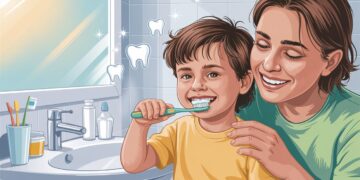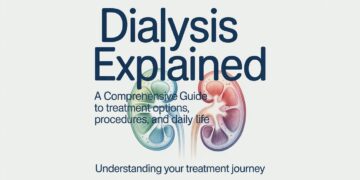When you experience a condition where you partially or completely stop hearing things from one or both ears, then you may consult the best ear doctor specialist such as an otolaryngologist or a neurotologist. This specialist will help you determine the underlying cause of your condition. They will also find a solution to your condition and will help you in treating them.
What exactly is an otolaryngologist or a neurotologist?
An otolaryngologist is a medical specialist doctor that treats problems of the ears. They also treat problems of the nose and throat. Further, they also treat a more specific area of the nose, ears, and throat i.e. pediatrics, cancer surgery, plastic surgery, and vascular surgery. In addition, they also treat a condition that relates to your head and neck. In short, they are known as ENT doctors.
Neurotologists also known as otologists, are medical ENT doctor who specializes in complex problems such as the problem of the inner ears, the base of the skull, and the auditory nerve. For this, they receive extra additional training.
What type of condition does an otolaryngologist treat?
The following are the type of conditions that otolaryngologists treat. They are as follows:
- A condition related to the ear such as hearing loss, infection, and trouble with balance.
- A condition related to nose and nasal such as sinusitis, allergies, and growths.
- A condition related to throats such as difficulty in swallowing, tonsillitis, and voice issues.
- Obstructive sleep apnea or a conditions such as snoring, your airway being blocked or narrow, and difficulty in breathing while sleeping.
- A condition related to your head or neck such as infection or tumor.
If you happen to experience or undergo any of these mentioned conditions, then it is high time for you to consult an otolaryngologist.
What type of condition does a neurotologist treat?
The following are some of the conditions that a neurotologist treats. They are as follows:
- A condition related to balance and dizziness problems.
- A condition related to ear anatomy disorders or skull base.
- They also treat problems that occur deep within the auditory nerve or ear such as tinnitus and acoustic neuroma tumors.
- They can also perform surgical implantation of the bone-anchored hearing system and cochlear implant surgery as well.
What is otosclerosis?
Otosclerosis is a very rare condition that causes a hearing problem or hearing loss. In the middle ear there is a small bone called the stapes. When this bone gets stuck in place it causes otosclerosis. The actual cause of this problem is when the bone tissue in the middle ears grows across the stapes as it shouldn’t.
The reason why you can’t hear
Vibration of the stapes bone is necessary for your ears to hear well. When it can’t vibrate, sound cannot travel from your middle ear to the inner year. As a result, you will not be able to hear things properly when the stapes get stuck in place.
What are the symptoms of otosclerosis?
The main symptom of otosclerosis is hearing loss. First, you will notice that you are not able to hear people whispering or low-pitch sounds. This get worsens over time. The other symptom of otosclerosis includes;
- Balance issues, dizziness, or Vertigo
- Ringing, roaring, or hissing in the ears or tinnitus
Many people who are suffering from this otosclerosis have hearing loss issues in both ears. However, only 10% to 15% of people have a hearing issue in just one ear. Sometimes, tinnitus can occur after receiving ear surgery to treat otosclerosis.
What are the risk factors of otosclerosis?
Otosclerosis is one such condition that affects almost 3 million Americans. and experts are still not able to find the exact cause of this disease. However, they know that the following factors can make you get this otosclerosis:
- Genetics: Genetics often runs in families. Almost half of the people suffering from otosclerosis have a condition that is linked to a gene. However. even if you have the gene, it does not necessarily mean that you will suffer from ostosclerosis.
- Age: Ostosclerosis generally develops between 10 to 45 years of age. Symptoms in the 30s are usually at their worst.
- Gender: Women have a higher chance or risk to get otosclerosis than men. When a woman gets otosclerosis while she was pregnant, then she is more likely to lose her hearing faster.
- Medical history: Medical history can also be one of the factors to cause otosclerosis. For examples having measles, an immune disorder, etc can develop otosclerosis.
Diagnosis of otosclerosis
The doctor will closely examine your ear and will perform a hearing test. The doctor may ask about the background or history of your family’s health. Further, you may require a CT scan and a series of X-rays taken from different angles of your ears. This series of X-rays will be put together to display an image with all the details.
Ways to treat otosclerosis
There are 3 ways to treat otosclerosis. They are as follows:
- Monitoring: The doctors use this procedure when you have very mild otosclerosis.
- Devices: Using devices is not a solution to cure otosclerosis. However, it can help in improving and helps your hearing sounds that you have lost.
- Surgery: The doctors use this procedure when you have very severe otosclerosis.
How can I find an otolaryngologist?
You can simply ask your primary care doctor to help you suggest an otolaryngologist.
Also Read: Streameastnews In The Best Streaming Service To Watch Nba.

















